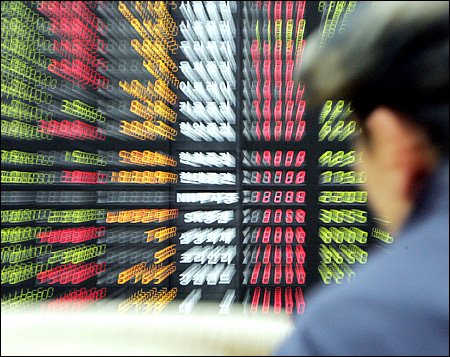Asian markets traded higher on September 30, recovering from the previous session’s steep losses, despite disappointing economic news from Japan.
The Japanese index, Nikkei 225, led the region’s gains, closing up 2.7% at 17,388.15, after losing more than 4% on September 29.
Investors ignored data that showed Japanese factory output shrank by 0.5% in August from July, and retail sales also fell short of expectations.
Investors are awaiting the Bank of Japan’s business confidence survey.
Bank of Japan’s quarterly Tankan survey due on October 1 is expected to show that business sentiment worsened in the three months to September.
Shares in Japan Tobacco fell 6.7% on concerns that it has paid too much to buy the rights for Reynolds American’s Natural American Spirit tobacco brand outside the US for 600 billion yen ($5 billion).
Chinese shares headed higher as investors took in news of a new tax cut on some car sales.
A government announcement on September 29 said the sales tax on cars with smaller engines would be halved. The cut will be effective from October 1, 2015, until the end of 2016.
China is the world’s biggest market for cars and the new tax cut will apply to about 70% of the market.
Hong Kong’s Hang Seng index closed up 1.14% at 20,851.32, while the Shanghai Composite closed up 0.48% at 3,052.78.
Australia’s benchmark S&P/ASX 200 index closed up 2.1% at 5,021.60 after hitting a two-year low on Tuesday.
Meanwhile, South Korea’s Kopsi index ended up 1% to 1,962.91 as it reopened following public holidays.
